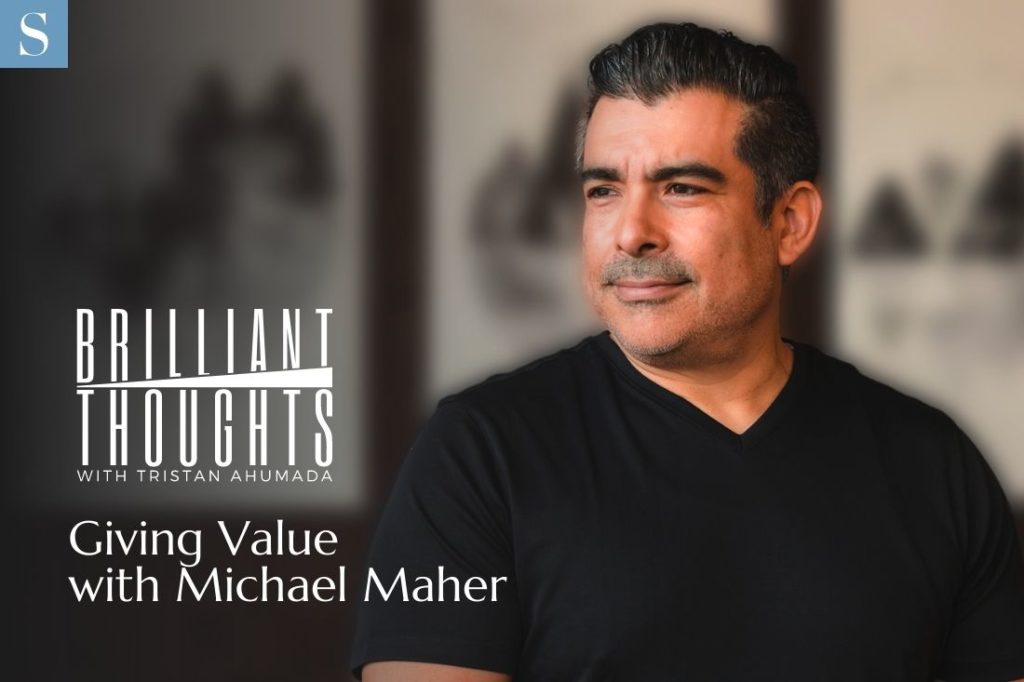How do you show your appreciation for an entrepreneur who goes the extra mile to help you out, even when there’s nothing in it for them? Thank you cards are undoubtedly a classic, but nothing expresses gratitude quite like a referral, the veritable love language of business owners worldwide.
When you refer a friend to a boutique salon, marketing firm or body shop, you’re not just helping that business generate income—you’re saying you believe in its ability to replicate a quality service or product, so much so that you’re willing to stake a social connection on it. If your friend also has a positive experience, they’ll appreciate your recommendation, and all three parties will have benefited. That’s powerful.
Most entrepreneurs instinctively understand this symbiotic process; the problem is that they just can’t seem to get it started. If you struggle to get referrals, it’s time to revitalize your business relationships through better communication. According to bestselling author and real estate phenomenon Michael Maher, that process starts with service and self-mastery.
Get the relationship moving.
“What is a relationship?” poses Maher in his recent interview with Brilliant Thoughts’ host Tristan Ahumada. “It’s simply a value exchange, in my opinion… and we need to go first.”
To illustrate his point, Maher asks Ahumada to think about two people on a teeter totter. If both people are sitting there not moving, it’s not very fun. Now imagine they’re throwing a heavy bag of gold back and forth. Each time they throw value, they move the teeter totter up and down, creating an enjoyable, mutually beneficial experience.
“When you’ve got that dynamic relationship, opportunities are going to come, referrals are going to happen and the relationship is going to flourish,” Maher explains. However, someone has to be willing to get the process started by giving value first.
In his highly acclaimed book The Seven Levels of Communication, Maher explains how approaching each relationship with a spirit of generosity ultimately benefits the giver as much as the receiver. These ideas are more than theories; they are the tried-and-true lessons that earned Maher the title of North America’s most referred real estate professional.
Embrace a service mindset.
Too often, entrepreneurs approach an opportunity looking to get something from it, a mindset that Maher says is all wrong. Instead of expecting to receive, people should step into a situation with the desire to provide a service or value to others. He says this perspective has benefited countless relationships and even facilitated his introduction to Tony Robbins.
Maher recounts attending an event in Las Vegas that Tony Robbins was speaking at and feeling as though he should have been invited to speak at it as well. When he saw the event’s curator walking past him, instead of focusing on what he could get out of the situation, he offered his service.
“I’m here to help,” he said to the event coordinator. “I will literally get water for the speakers, whatever you need me to do, I’m here to help.”
With no idea who Maher was, the curator initially declined his offer, but upon realizing who he was, sent someone to escort him to the green room. A fan of his work, he wanted to know why Maher hadn’t revealed his identity, to which Maher responded he “didn’t think mattered.” As a result of that interaction, Maher found himself speaking at and emceeing the same event the following year, an opportunity that most likely wouldn’t have happened had he not offered to help.
Put your oxygen mask on first.
As with many service-oriented people, Maher has experienced the burnout that comes from putting everyone else first. This was especially true at the beginning of the COVID-19 pandemic, when he felt compelled to step up and put extra care into his community, which he calls the Generosity Generation.
“I was born for this,” he remembers thinking after giving a crisis response 101 presentation on Zoom, March 20, 2020—one week after the stay-at-home mandate went into effect. “All the stuff I’ve been doing all my life was so that people would have somebody to follow, look up to and act as a guide at this time.”
Although Maher was grateful for the opportunity to provide extra care during those terrifying months, it wasn’t long before he stopped taking care of himself. He gained weight and felt exhausted. Eventually, he realized he would need to take care of himself first in order to keep serving, a reality he likens to a parent putting on their oxygen mask first.
These days, Maher doesn’t have that problem. When he’s tempted to neglect himself, he remembers the acronym FLY, which stands for “first love yourself.” This concept is key to self-mastery, one of the three pillars underpinning The Seven Levels of Communication. With more energy for himself, Maher can care for his community without sacrificing his health.
Get energized.
Just like relationships are a value exchange, life is largely an energy exchange. Maher says that if you pay attention, you’ll start to notice the people, situations and environments that give you energy, and perhaps more importantly, the ones that drain it. Avoiding the things that make you feel drained and running toward those that provide energy is a key part in creating reciprocal relationships.
In his own life, Maher knows he feels best when putting his family first. To get there, he had to change certain behaviors, like spending every Sunday watching football, sometimes catching as many as 10 games from multiple screens. Now, his family spends “Son-days” together, a time they use to prepare for the week ahead. He calls this ritual of looking forward SWEET: schedule, weather, eating plan, exercise plan, together.
The level of intentionality he brings to family time not only energizes and sets him up for success, but also fosters more love within his family unit. By giving more value to his family, he adds to the momentum of generosity-driven mutuality.
“What happens when you’re always giving value is the universe starts to conspire for your success, the reciprocity kicks in,” he says. “If you’re always giving value, you’re always going to be in relationships.”
Brilliant Thoughts with Tristan Ahumada is no longer releasing new episodes on the SUCCESS Podcast Network, but you can still listen to the full conversation below.












